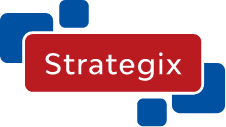When interacting with existing and potential customers, you need the right principles, practices and guidelines in place. This is why you need a customer relationship management (CRM) solution that is tailored to your business and caters for both sales and service-related interaction.
The role that comprehensive CRM plays in your sales department cannot be underestimated, but it is important to distinguish between the ways CRM, specifically when it comes to sales force automation, can add value when it comes to the ground force, mid-management and the upper echelons. As you move up the ladder, roles tend to change from more tactical to more strategic, and that is why CRM should be a blanket application across the business.
In the first part of this article we looked at how CRM through sales force automation can and should empower your sales team that works directly with clients; the people who are client-facing and literally form the ground force. In today’s blog we will look at how a comprehensive CRM system can improve the productivity of those people who manage them – in other words, mid-management.
Mid-management
These are the people who occupy the middle of the corporate ladder. Mid-management comprises those people who manage the sales force in some capacity, e.g. branch managers and regional managers. Their jobs include collating all the metrics from sales, market reports and pipeline reports; and producing customisable dashboards to summarise the state of affairs and obtain a comprehensive view of the sales force. They can then act on this accurate data and manage and allocate resources more efficiently.
Management has to keep an eye on daily, weekly and monthly goals as well as steer the ship along the chosen course – they execute policy that comes from the command centre (the top of the ladder) while managing the ground force to implement said policies and goals. Therefore, CRM and in particular sales force administration is crucial in helping them to successfully manage all their priorities.
Comprehensive dashboards will help management to identify sales opportunities, optimise areas of strengths as well as anticipate and identify potential challenges. The improved overall view of the sales force allows them to better facilitate cooperation between different departments and promote streamlined business processes across the board.
With the right CRM system in place, sales force automation allows management to implement best practice and create pipelines that best suit the business’ operational model. They can drive the sales strategy while carefully monitoring performance and output via the sales force automation system.
The right CRM system, specifically one with a customised and comprehensive sales force automation function, can simplify and streamline the job of middle management and allow them more clarity into the company’s business processes as well as keeping track of business performance.
In our final part of this article, we’ll find out how CRM can make the top guys, the command centre also known as executive management more effective.
Microsoft Dynamics CRM is the perfect solution to your CRM needs. More than four million users worldwide use it as their preferred CRM solution. It offers Outlook integration, which means that all your emails, appointments, tasks and contacts are flawlessly and effortlessly synchronised. It is also fully customisable: you get automated notifications, custom fields on your forms and custom reporting, to name a few standouts. Finally, it is cloud-based so you can access Microsoft Dynamics CRM from anywhere, at any time.





